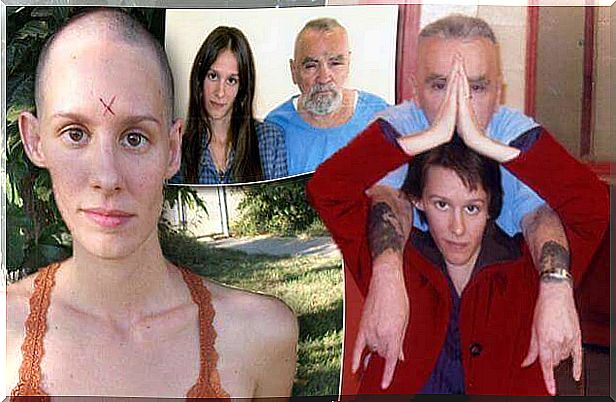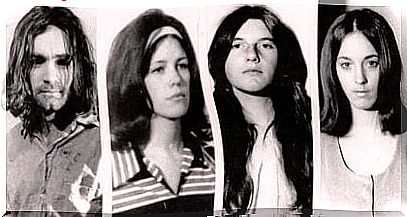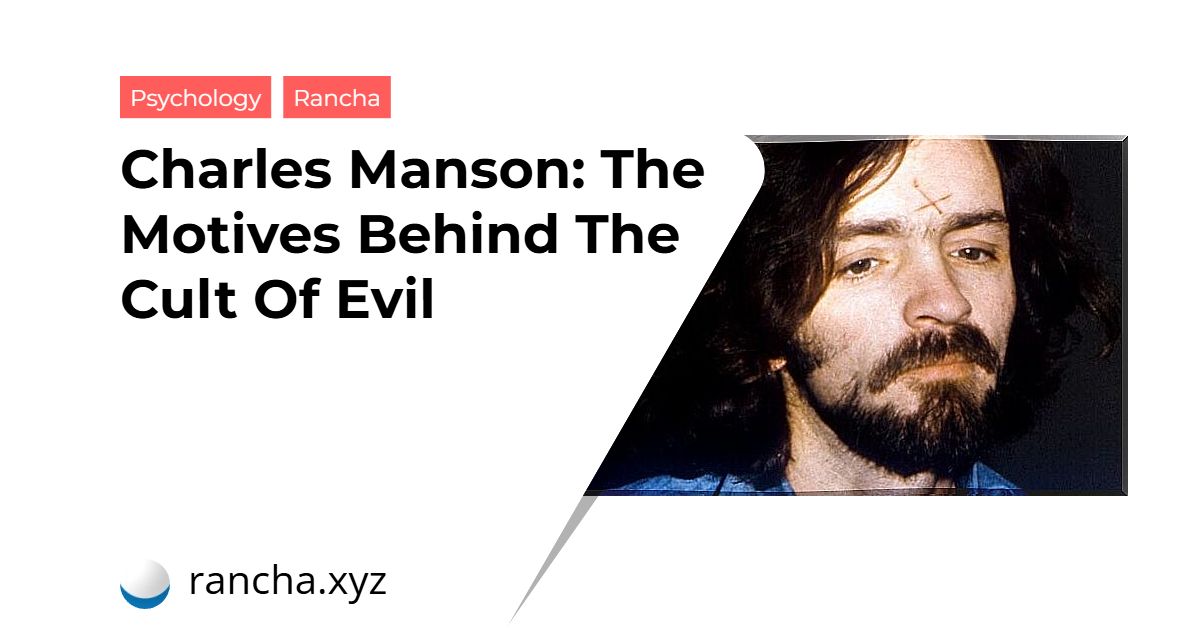This is a real puzzle to the world of psychology. Understanding why the cult and obscure fascination around the figure of Charles Manson is one of the great challenges that the science of behavior and personality has been trying to unravel for a long time. Charles Manson, who was the fanatical leader of the “ Family ”, sees his following increase again after his death.
This, no doubt, is disconcerting. However, the issue is not new; ever since the media trials took place in the early 1970s, something was immediately noticed by the psychologists, psychiatrists and journalists who followed the case. Manson was able to orchestrate a kind of psychological fascination with which he got his pupils to kill for him, and through which he managed to get a group of devoted followers around his figure.
In 2014, Charles Manson got a license to marry while serving his life sentence. The bride was Afton Burton, a 26-year-old girl with whom she had been corresponding since she was 16 years old. Although the wedding was never celebrated, we can see images of both, including the aesthetic transformation of the girl when she chose to look more like her idol, shaving her head and tattooing the famous cross on her forehead.
This fact, the circumstances of the murders themselves, and the whole incomprehensible and unfair cult around Manson, now finds a new spark of energy after his death. The weight of its name continues to grow, creating doubts that experts seek to clarify.
Throughout the history of criminology, something repeats itself: evil attracts, the murderer seduces and, what is even more evident, the great murderers or instigators, as in the case of Manson, continue to sell and inspire scripts to the world of cinema and television.

Charles Manson’s Personality
One thing that criminologists agree on is that today misconceptions around the Manson figure are still held. When we think of the most obvious example of a serial killer, for most of us, his face immediately comes to mind. However, in the history of the criminal world, the clearest example of this category is represented by two names that are much less media-friendly: Ted Bundy and the “Murder Clown” John Wayne Gacy.
Was he really a serial killer?
Charles Manson was not a serial killer and actually never fell into that category. From a psychological point of view, the case of the “ Family ” is undoubtedly one of the most striking for several reasons. Manson instigated, persuaded and manipulated his disciples into committing a series of murders guided by a very specific secret code: “ Helter Skelter ”.
These terms make up nothing more than the title of a Beatles song, a song that spoke of the hardships of love, but for him it was something more. That was the justification for an apocalyptic race war, and it was its obsession and inspiration. The crimes took place over two nights, that is, it was not an impulse, it was not an act carried out by a momentary delirium.
There was planning and, most impressive to experts, Manson got his disciples to commit new murders. He did not let them reflect on the acts they had committed, and his power of persuasion and manipulation was absolute and perfect. He managed to preserve in them an absolute emotional coldness.

Later, once in prison, attempts to understand the psychological aspects that made up Manson’s personality were almost constant. We can say that there was never a clear and objective diagnosis about the types of disorders he suffered. However, something many analysts agreed on was that it had two very distinct dimensions: frustration and conflict.
A childhood of abuse, deprivation and social services that completely neglected him led him to try to survive prematurely through crime. The continual challenge and contempt for authority were a constant in his life. Later came megalomania, the formation of a psychopathic personality, and the Kakon or Great Anguish syndrome.
Why the attraction and worship of Charles Manson
Sheila Isenberg was one of the first psychiatrists to find reasons that could justify this fascination around such a dark figure as Charles Manson; someone who, on the other hand, used to call himself “the prophet of Satan.” Dr. Isenberg proposed several psychological theories in her book ” Women Love Men Who Kill “. They are as follows:
People with low self-esteem
A first explanation refers to the “hyper empathy syndrome”. It occurs in women with very low self-esteem who only connect with relevant figures, people of notoriety who offer them a sense of worth. In this case, connecting with a known killer who has impacted society is a way to nurture your emptiness and feel safer, and more important.
Furthermore, their excess of empathy allows them a deeper connection with the person, to the point of justifying the murderer’s wrongdoings.
The “Homicide” effect
The “murderer” effect is composed of two terms “murderers + idols”. It is something that undoubtedly represents the figure of Charles Manson very well, as well as Jack the Ripper, Hannibal Lecter, etc. Sometimes people experience an attraction/admiration for people (real or fictional) who are known to perform acts of great violence. Far from rejecting their actions, they turn them into idols and figures to revere.
This phenomenon, according to psychiatrists Micael Dahlén and Magnus Söderlund, usually occurs in successful women, with good academic training and with good social status. However, it must be said that this is something quite common in our society. Just remember that the figure of Charles Manson inspired bands like Guns N’ Roses or Marilyn Manson.
“Hyristophilia”
Hybridophilia is a term in forensic psychology that defines those people who are attracted, both psychically and erotically, to “dangerous” individuals. Far from being normal behavior, this desire and this type of attraction, uncommon and above all not at all reasonable, certainly falls into the category of paraphilias.
To conclude, if we are certain of one thing, it is that the figure of Charles Manson will remain (to our surprise) for a long time registered in the social, criminal and cultural domains. In fact, today the name “Charles Manson” continues to generate profit and his heirs hope that his memory will remain present for a long time to be able to monetize it. In this sense, it seems that it will not be difficult: recently Tarantino has already mentioned a movie and new books are also expected.
The cult of evil or curiosity for the darker side of human beings continues and will continue to attract us indefinitely…
 rancha.xyz Be free to choose their own route to self-knowledge, health and balance of body and soul.
rancha.xyz Be free to choose their own route to self-knowledge, health and balance of body and soul.




